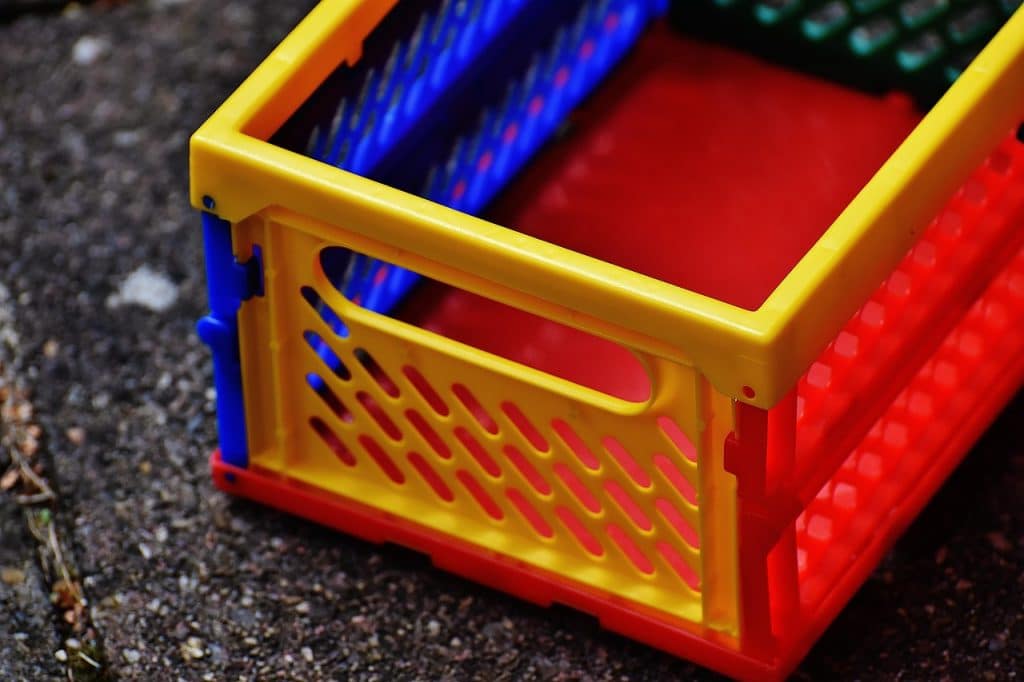Walk into any modern warehouse and you’ll see them, big, rugged plastic boxes sitting on pallets like they own the place. They’re not just storage. They are part of the strategy.
Plastic Pallet Boxes have quietly become the backbone of logistics, manufacturing, and retail. And if you’re still clinging to wooden crates or cardboard, you might be bleeding money without even realizing it.
So, What’s the Big Deal?
Start with durability. Plastic pallet boxes don’t crack, splinter, or rot like wood pallet boxes do. They shrug off moisture, chemicals, and even pests. That means fewer replacements and fewer headaches. Some industry reports say these boxes can last up to 10 years, compared to wood’s 3 to 5 years. Ten years of service. That’s not just durability, that’s cost control.
And weight? They’re lighter. Easier to handle, fewer injuries, and lower shipping costs. Some businesses report saving 15–20% on transport costs just because plastic weighs less. That’s real money back in your pocket. And when you’re moving thousands of units every month, those savings add up fast.
Space: The Silent Killer of Profit
Warehouses eat cash when space isn’t optimized. Plastic pallet boxes fight that battle for you. Stackable designs let you go vertical. Collapsible versions? They cut storage space by up to 75% when not in use.
Imagine reclaiming three-quarters of your floor space without building a new facility. That’s the efficiency you can feel. And in a world where rent per square foot keeps climbing, space is money. Plastic pallet box help you keep more of it.
Hygiene: More Than Just Clean Floors
If you’re in food, pharma, or any regulated industry, hygiene isn’t optional. Plastic pallet boxes are non-porous. They don’t soak up moisture or harbor bacteria. A quick wash and they’re good to go.
Compare that to wood, which can absorb liquids and become a contamination nightmare. For businesses under strict compliance, these boxes aren’t just convenient—they’re lifesavers. One contamination incident can cost millions in recalls and reputation damage. Why risk it?
Safety and Damage Control
Ever had a product ruined by a splinter or a rusty nail? Wooden crates do that. Plastic pallet boxes don’t. Smooth surfaces mean fewer worker injuries and less damage to goods. Some data even shows a 30% drop in product damage when businesses switch to plastic.
That’s not just safety, it’s customer satisfaction. And satisfied customers come back. They don’t care about your packaging method, but they do care about their goods arriving intact.
The Sustainability Angle
Here’s the part everyone asks: “But isn’t plastic bad for the environment?” Not when it’s reusable and recyclable. Most plastic pallet boxes are made from HDPE or PP, and they’re fully recyclable at the end of life. Plus, their long lifespan means fewer resources consumed over time.
One study estimates a 60% lower carbon footprint compared to wood over the lifecycle. So yes, they’re green, if you use them right. And let’s be honest, sustainability sells. Clients want eco-friendly partners. Plastic pallet boxes help you tick that box without sacrificing performance.
Applications That Make Sense
Manufacturing plants love them for heavy parts. Retailers use them for bulk goods. Agriculture? Perfect for produce because ventilated designs maintain steady airflow. Automotive? They handle engine components without breaking a sweat.
And e-commerce? Collapsible boxes make return logistics painless. If you move stuff, these boxes fit somewhere in your workflow. They’re not niche, they’re universal.
Cost: The Elephant in the Room
Sure, the upfront cost is higher than wood. No sugarcoating that. But zoom out. Fewer replacements, lower maintenance, reduced transport costs, and less product damage. Over ten years, businesses report saving 15–20% compared to wooden alternatives.
That’s why smart companies call it an investment, not an expense. And if you’re serious about scaling, about running lean, about staying compliant, this is where you start.
The Business Angle Nobody Talks About
Plastic pallet boxes aren’t just containers. They’re branding tools. When clients walk through your facility and see clean, uniform, professional-looking storage, it sends a message. You care about quality. You care about safety.
And in competitive markets, perception matters. Plus, these boxes integrate with automation systems better than wood. Robotics loves uniformity. If you’re planning to automate, plastic is your friend.
Bottom Line: Stop Thinking Small
Plastic pallet boxes cut costs, save space, and keep your goods secure. They boost hygiene, improve safety, and support sustainability goals.
They’re not just boxes, they are a business decision. If you’re still debating, ask yourself: How much are inefficiencies costing you every year? Because sometimes, the box is the detail that changes everything.
